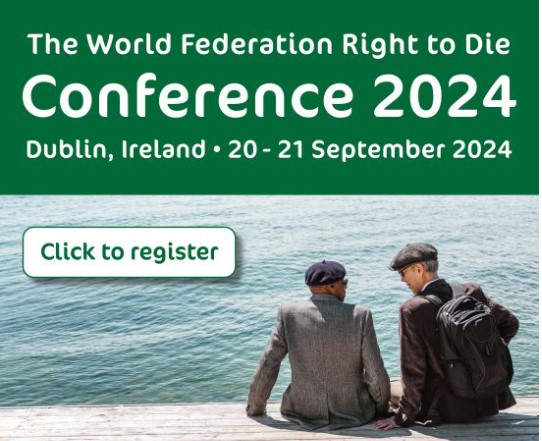Last week, End of Life Ireland hosted the 2024 international conference of the World Federation of Right to Die Societies, which pro-euthanasia campaigners from around the world attended. Several speakers at the conference made no secret of their wish to see euthanasia and assisted suicide permitted on very broad grounds indeed, far beyond the terminally ill. They are not even trying to hide the slippery slope.
On 17th October, the Dáil will vote on the Report of the Joint Oireachtas Committee on Assisted Dying, which recommends both euthanasia and assisted suicide for patients deemed to be within six months of death. But we can already see the ambition of campaigners to go much further than this.
Speakers at the conference included Justin McKenna and Jane Lazer of End of Life Ireland. When they appeared before the Oireachtas Committee, they expressed a wish that euthanasia and assisted suicide be made available on broad grounds. Some of what they had to say can be found here.
Another speaker was Colin Brewer. He is worth noting because he was struck off the medical register in Britain in 2006 for serious professional misconduct. According to The Guardian, he had provided “patients with a lethal cocktail of drugs that led to the death of one and the development of further addictions in several others”.
Later, Brewer revealed that between 2013 and 2016 he had helped six British people to end their lives at assisted suicide clinics in Switzerland simply because they had dementia.
Why did the Irish speakers seem happy to share a platform with him?
Brewer is an advocate for euthanasia not only for those suffering from dementia but also for “patients with motor neurone disease, stroke and other intractable and/or progressive conditions don’t want to face years of intolerable quality of life.”
Brewer’s presentation was titled: “Most people considering MAID (medically assisted death) for early dementia aren’t ‘depressed’, they are understandably unhappy.”
His panel also featured a presentation titled “Dementia as part of the end of life conversation,” and on the same day, two Canadian activists spoke about “Glimpses into dementia and assisted dying”.
Five of the six patients assessed by Brewer ended their lives at the Dignitas clinic in Zurich.
Silvan Luley, a representative of Dignitas, also spoke at the conference. His talk, “Assistance for the right to choose the time and manner of one’s end of life – Beyond terminal”, underscored that Dignitas offers assisted suicide not only for terminally ill patients but also for those with “unbearable pain”, which is defined entirely at the discretion of the person seeking to die.
When Luley presented at the Joint Oireachtas Committee, last year, he noted that less than half of those who die at Dignitas are terminally ill.
Luley also revealed that 12 Irish residents have died at Dignitas since 2003, while approximately 100 Irish people are currently members of the organisation. The membership fee for “accompanied suicide” is 2,500 Swiss Francs (around 2,600 euro), but the full service, including funeral and administrative arrangements, costs more than 11,500 euro plus VAT.
TDs who will vote on the above-mentioned Report next month should make themselves aware of what was said at last week’s conference and recognise that once assisted suicide or euthanasia are legalised, the pressure will be on to expand the grounds far beyond the terminally ill.
















